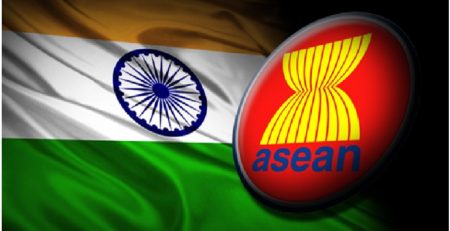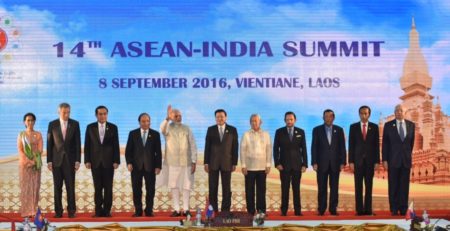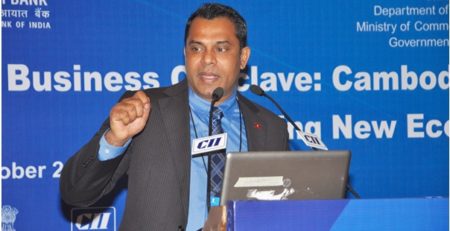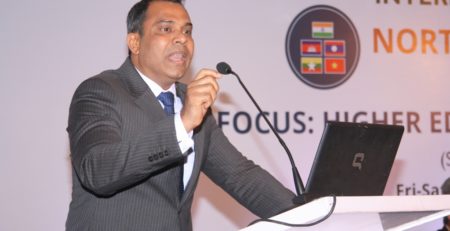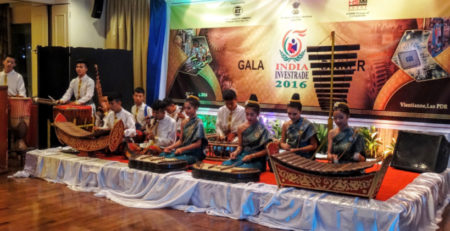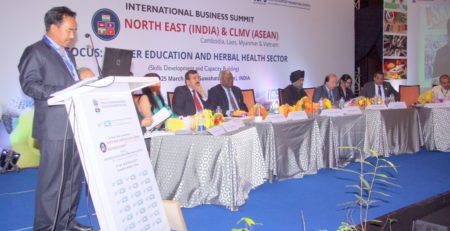ASEAN – INDIA Business Prospects
The Association of South-East Asian Nations (ASEAN) comprises of Indonesia, Singapore, Philippines, Malaysia, Brunei, Thailand, Cambodia, Lao PDR, Myanmar and Vietnam. India forms a strategic relationship with the ASEAN owing to India’s own march towards an economic liberalization during the 1990s which culminated in the formulation of ‘Look East Policy’. The Look East Policy has today matured into a dynamic and action oriented ‘Act-East Policy’ as enunciated by Prime Minister Narendra Modi at the 12th ASEAN India Summit and the 9th East Asia Summit held in Nay Pyi Taw, Myanmar, in November, 2014.
There is significant potential for expanding mutually beneficial economic relations between ASEAN and India. Economic cooperation and integration have become an important focus on recent development discourse as ASEAN and India have experienced economic growth and achieved significant improvements in income equality, poverty alleviation and other socio-economic goals. Also due to ASEAN-India Free Trade Agreement (AIFTA), total trade between ASEAN and India has significantly increased. The bilateral trade between India and ASEAN totaled US$80 billion in 2014, up ten billion from 2012 and increasing by an average annual rate of 23 percent over the past decade. A large portion of India and ASEAN’s surging economic and political relationship can be accredited to the Act East Policy and the rising business optimism within the ASEAN.
India-ASEAN trade and investment relations have been growing steadily, with ASEAN being India’s fourth largest trading partner. The annual trade between India and ASEAN stood at approximately US$ 76.53 billion in 2014-15 though it declined to US$ 65.04 billion in 2015-16 essentially due to declining commodity prices amidst a general slowing down of the global economy. Investment flows are also substantial both ways, with ASEAN accounting for approximately 12.5% of investment flows into India since 2000. FDI inflows into India from ASEAN between April 2000 to May 2016 was about US$49.40 billion, while FDI outflows from India to ASEAN countries, from April 2007 to March 2015 was about US$38.672 billion. The ASEAN-India Free Trade Area has been completed with the entering into force of the ASEAN-India Agreements on Trade in Service and Investments on 1 July 2015. ASEAN and India have been also working on enhancing private sector engagement. ASEAN India-Business Council (AIBC) was set up in March 2003 in Kuala Lumpur as a forum to bring key private sector players from India and the ASEAN countries on a single platform for business networking and sharing of ideas.
India has been cooperating with ASEAN by way of implementation of various projects in the fields of Agriculture, Science & Technology, Space, Environment & Climate Change, Human Resource Development, Capacity Building, New and Renewable Energy, Tourism, People-to-People contacts and Connectivity etc. Services trade between India- ASEAN also has been seen as a good potential area to expand. From ASEAN, the Philippines has witnessed a steep rise in services trade, particularly in the IT-BPO services. Several Indian companies have opened offices at Manila in the last few years
Another feature of the Indian trade is the extremely large share of computer and information services. Exports of information technology services can be broadly broken into three categories: (1) software services; (2) IT-enabled services (ITES, a type of business process outsourcing featuring such services as call centers and medical record processing); and (3) R&D services, such as for product development. At present software services is the largest, but the second category of IT-enabled services is quickly growing. On account of the language barrier and other factors, Indian companies have traditionally engaged in business transactions mainly with Western companies, but recently, taking advantage of swelling demand, they are doing more business with Japan, China, and other East Asian countries. It is possible for India’s firms to join in the ASEAN production networks by using computer and information services to develop deeper ties with this region. Another recent trend not limited to India is for trade in medical services to expand. This trade is occurring not just because medical costs are low in some countries but also because efforts have been invested in fostering skilled and experienced doctors
India is seeking to diversify its conventional energy sources and significantly increase exploration of oil and gas in its territory. ASEAN countries, viz. Indonesia, Malaysia and Brunei, possess enough expertise in this area, which can provide considerable scope for energy cooperation. The energy sector companies from ASEAN and India could cooperate with each other in oil and gas exploration and in down-stream processing activities. As an example, India’s national oil company is already involved in a joint venture to explore oil and natural gas in Vietnam. Thus, the two countries are already cooperating in the energy sector, but there is definitely scope for further strengthening it. Cooperation in the civilian nuclear power sector for energy is also feasible and desirable. Mineral exploration and processing is another area that could be actively explored by India and some countries in ASEAN. There is a massive potential of economic viability in this area as most of the nation are rich in natural resources.
ASEAN-India business collaboration has obvious advantages for India because it can import products from ASEAN more cheaply than before. Furthermore, India can diversify trade ties and enlarge its export market, thereby reducing its dependence on the EU and the US as delivery markets. As ASEAN started engaging in international trade earlier than India, they are much more integrated into the world economy. India has enhanced its activities toward more integration and engagement in global trade and ASEAN could serve as a multiplying force for India to catch up. Thus the government, industry elites and media on both sides need to make more effort to enhance and increase the pace and scope of this dynamic business relationship. An essential element is prospering ahead and sustaining the economic association of India-ASEAN is to build trust and confidence in each other and set up frameworks that see to the smooth conduction of trade and business activities.
#ACTEASTPOLICY #HSMMGroup #ASEAN








